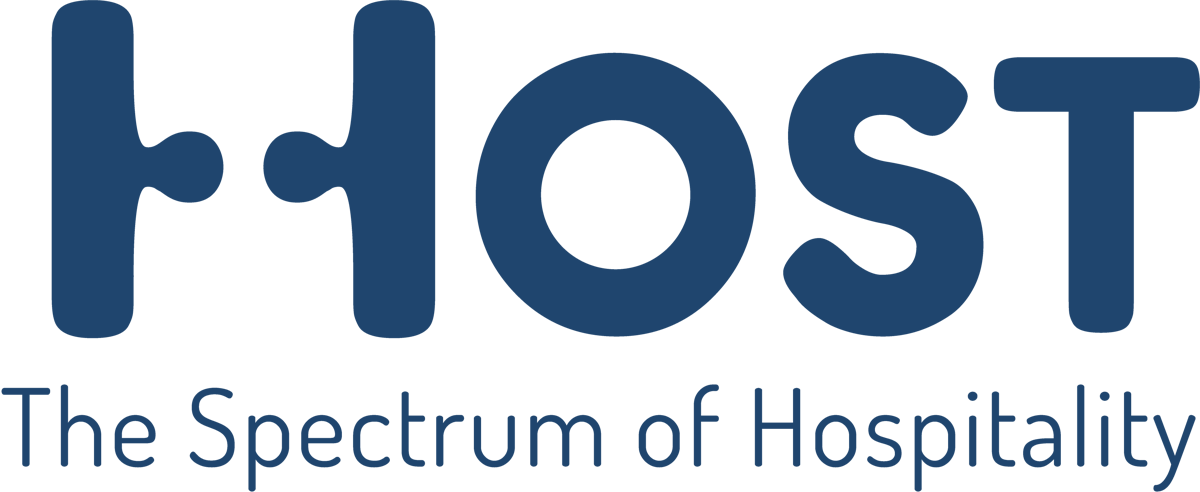4th Transnational Partners' Meeting of the HOST Project Concludes Successfully in the Netherlands
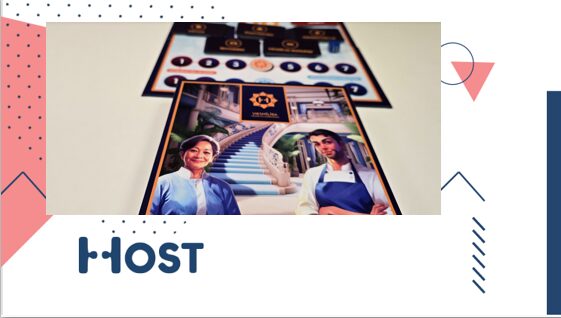
The 4th
Transnational Partners' Meeting (TPM) of the HOST Project was recently
held in Leeuwarden, Netherlands, marking an important milestone in the
project’s ongoing efforts to foster inclusivity in the hospitality industry.
This meeting brought together partner organizations to evaluate progress, test
the HOST board game mechanics, and plan the next steps in the development of
the final version of this innovative training tool.
Unlocking Neurodivergent Potential in Hospitality
A key focus of the HOST Project is unlocking the potential of neurodivergent individuals, particularly those with autism, within the hospitality sector. Individuals on the autism spectrum often have unique strengths such as exceptional attention to detail, pattern recognition, and the ability to deeply focus on tasks. These traits make them highly valuable in roles requiring precision, consistency, and creative problem-solving—qualities that are often overlooked in the fast-paced world of hospitality.
However, for these strengths to be effectively harnessed, managers must be equipped with the right training and tools to understand and support the needs of neurodivergent employees. This is where the HOST Project comes in. Through the development of a board game and accompanying training materials, the project aims to provide hospitality managers with the resources necessary to create more inclusive work environments.
Building an Inclusive Workplace: The HOST Board Game
The HOST Board Game was a highlight of the meeting in Leeuwarden, where partners tested its mechanics to ensure that it delivers a meaningful and engaging learning experience. This board game is designed to help managers better understand neurodivergence and how to create environments where both neurodivergent and neurotypical employees can thrive together.
The training tools provided by the project offer practical advice on how to accommodate different working styles, from clear communication to creating predictable routines and sensory-friendly environments. These simple adjustments can drastically reduce stress for autistic individuals and improve their performance, making them feel more comfortable and empowered at work.
The Benefits of Inclusion for All
The HOST Project highlights that inclusion is not just about providing equal opportunities—it also represents a competitive advantage for businesses. In the hospitality industry, where attention to detail, creativity, and customer service are crucial, neurodivergent employees can bring a fresh perspective and innovative solutions to the table. By fostering a culture of inclusion, hospitality businesses can tap into an underutilized talent pool, improve team cohesion, and enhance workplace productivity.
Furthermore, the project emphasizes the importance of building empathy and understanding between neurodivergent and neurotypical staff. This collaboration can reduce stigma, promote mutual respect, and ultimately lead to more harmonious working relationships.
Looking Ahead
As the HOST Project moves forward, the development of the board game and training materials will continue to evolve, with the ultimate goal of delivering practical, impactful tools to the hospitality industry. By empowering managers to support neurodivergent individuals, the project aims to create more inclusive and innovative workplaces where everyone has the opportunity to succeed.
The success of the 4th Transnational Partners' Meeting in the Netherlands marks another step toward achieving this vision, paving the way for a more inclusive, productive, and empathetic future in hospitality.
Advancing Autism Inclusion through Innovative Training Materials in Hospitality
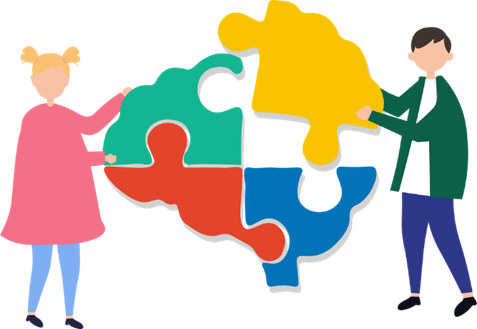
The HOST project, under the banner of The Spectrum of Hospitality, has achieved a remarkable milestone by developing specialised training materials and tools tailored for Human Resources professionals and managers in the hospitality sector. Central to these resources is a VET-based board game that simulates real-world workplace scenarios, promoting an inclusive and engaging environment while enhancing essential skills such as communication, problem solving, and teamwork. The training materials are designed to enhance the skills of staff with Autism Spectrum Disorder (ASD) by improving their technical and theoretical knowledge, soft and job-specific skills, communication, problem-solving abilities, teamwork, decision-making, and other crucial interpersonal skills. This initiative centred on creating Vocational Education and Training (VET)-based methodologies to equip these professionals with the essential skills to effectively train and support staff with Autism Spectrum Disorder (ASD).
Autism Friendly Training

Autism-friendly training is becoming a common term in today’s workplace discussions, but what does it truly mean?
Monotropism: Exploring Singular Focus in Autism

Autistic people are renowned for their narrow and intense focus. The concept of monotropism, introduced by autistic autism researchers Dr Dinah Murray (1946-2021) and Dr Wenn Lawson (1952), provides a fascinating perspective on the singular focus characteristic of autism. Dr Murray and Dr Lawson argue that monotropism is a fundamental aspect of cognition in autism and can directly or indirectly explain all features associated with autism. In order to create a supportive and autism-friendly environment (e.g. in the workplace), it is crucial to understand monotropism as it brings both strengths and challenges which shall be addressed.
Essentially, monotropism is a cognitive style characterised by a kind of “tunnel vision”. Non-autistic people’s cognitive style tends to be polytropic, meaning that they can switch attention between various tasks and stimuli quickly and take in more information on a surface level, however, they are prone to missing nuance and detail. In contrast, the monotropic mind concentrates resources on one thing at a time. Monotropism contributes to repetitive behaviours in autism by shaping the individual's focus on a particular activity, a 'special interest', a stimulus, or anything else to the point of excluding others. While this singular focus lets autistic people excel in repetitive, monotonous tasks and brings great attention to detail, it also makes transitions or processing multiple things at once hard. Moreover, people with a monotropic cognitive style may miss 'the bigger picture'.
One of the core features of autism is difficulty in social situations. Because of their singular focus, autistic people may struggle to simultaneously combine various aspects of communication: analysing the social context and figuring out what behaviour is appropriate, maintaining eye contact, thinking about what they have to say, putting it into words (especially if they are visual thinkers), speaking, gesturing and showing the proper facial expressions, listening and processing what they've heard, looking for subtle, hidden meanings, and seeing and interpreting others' nonverbal communication. In addition, each conversation happens in an environment whose stimuli must also be processed. In places with many sensory stimuli, autistic people can find it increasingly difficult to maintain a conversation.
Because the autistic brain struggles to process and cope with multiple channels of information at once, it can easily become overflooded with information, leading to cognitive or sensory overload and, occasionally, a meltdown or shutdown. In this context, it is also important to note that, while autistic people are often sensitive to particular stimuli, it is most often complex sensory input which is overwhelming and leads to overload and extreme reactions.
By learning about monotropism, we can explore the cognitive profile of autistic people and pave the way for adequate support systems and necessary accommodations in the workplace and in general. Recognising and understanding monotropism is paramount for creating inclusive spaces and welcoming and appreciating autistic people as meaningful, invaluable members of society.
If you wish to learn more about our project and creating autism-friendly workspaces, follow our Facebook page!
Wrapping Up the HOST Project

Empowering Hospitality Managers and HR Experts
The HOST Project Training Course for Hospitality Managers and HR Experts is nearing its completion! Over the past few months, the project consortium has dedicated itself to extensive research and the development of training materials tailored to the genuine needs and challenges faced by both employers and staff with autism within the European hospitality industry.
Development of the HOST Boardgame

These past weeks, the partners have been in a creative process with the development of game cards to the HOST Boardgame. A boardgame that serves as a learning tool for hospitality staff with autism, through critical thinking, problem solving and conversation. Partner and specialist in games, 8D Games, has designed a very nice framework for the other partners to work with.
Dispelling Myths: The Truth About Empathy in Individuals with Autism

One of the most persistent prejudices about individuals with autism is the misconception that they lack empathy. In reality, many autistic individuals are highly empathetic, while some may not experience empathy in the traditional sense.
Empowering Education: HOST Board Game and the Design Thinking Journey for Targeted Learning

Developing new tools and interventions requires a different mindset than applying existing solutions. Radical change requires designers to be hyper critical of their own work: are we designing the right thing, and are we designing it right?
Understanding the Dynamics of Neuro-diverse Teams in the Workplace
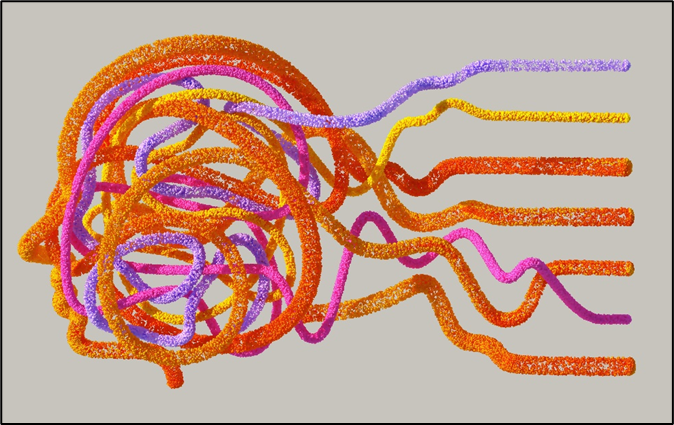
Autism introduces a unique blend of
strengths and challenges in the workplace. Recognising and understanding these nuances
can pave the way for a more conducive work environment. For
example, individuals with autism often have their distinct
communication styles. That is, they might prefer clear and direct
instructions, and sometimes, visual aids too can be a great help to
them. The sensory experiences, which are a constant in the bustling
environment of hospitality, can be particularly intense for some
with autism. For this purpose, simple adjustments, like modifying
the lighting or creating quiet zones, can enhance their comfort.
Additionally, social interactions, which are the essence of the
hospitality sector, can pose challenges. Ensuring interactions are
structured and predictable can make a world of
difference.
Meet the hospitality crew of the HOST board game!

The art for the game is coming along really nicely. How did this group of characters come together, and what considerations were taken into account?
Tailored for Inclusion: Development of VET Courses in the HOST Project

In the HOST project, the development of VET courses for hospitality managers and HR experts is making steady progress. The next exciting step in the project is the creation of six training modules aimed at enhancing knowledge and skills for these professionals regarding staff with Autism and showcasing the opportunities that come with including staff with Autism in the workforce. This process has just begun.
The Power of Learning Through Play

When we think of learning and transmitting information, images of classrooms, textbooks, and lectures often come to mind. However, one of the most effective and enjoyable ways to acquire knowledge, skills, and problem-solving abilities is through play. Learning through play isn't just for children; it's a powerful approach that extends across all age groups. How come playing is such an effective way to learn and grow?
Unveiling the Strengths of Neurodivergent Individuals in the Hospitality Sector

One of the remarkable attributes neurodivergent individuals often exhibit is their sustained attention and meticulous eye for detail. This skill is a crucial asset in the hospitality sector, where precision is paramount in delivering exceptional guest experiences. Whether it's arranging cutlery on a dining table or ensuring every room detail is immaculate, their ability to focus for extended periods and spot even the tiniest discrepancies adds an unparalleled level of quality control.
A key project goal of the HOST consortium
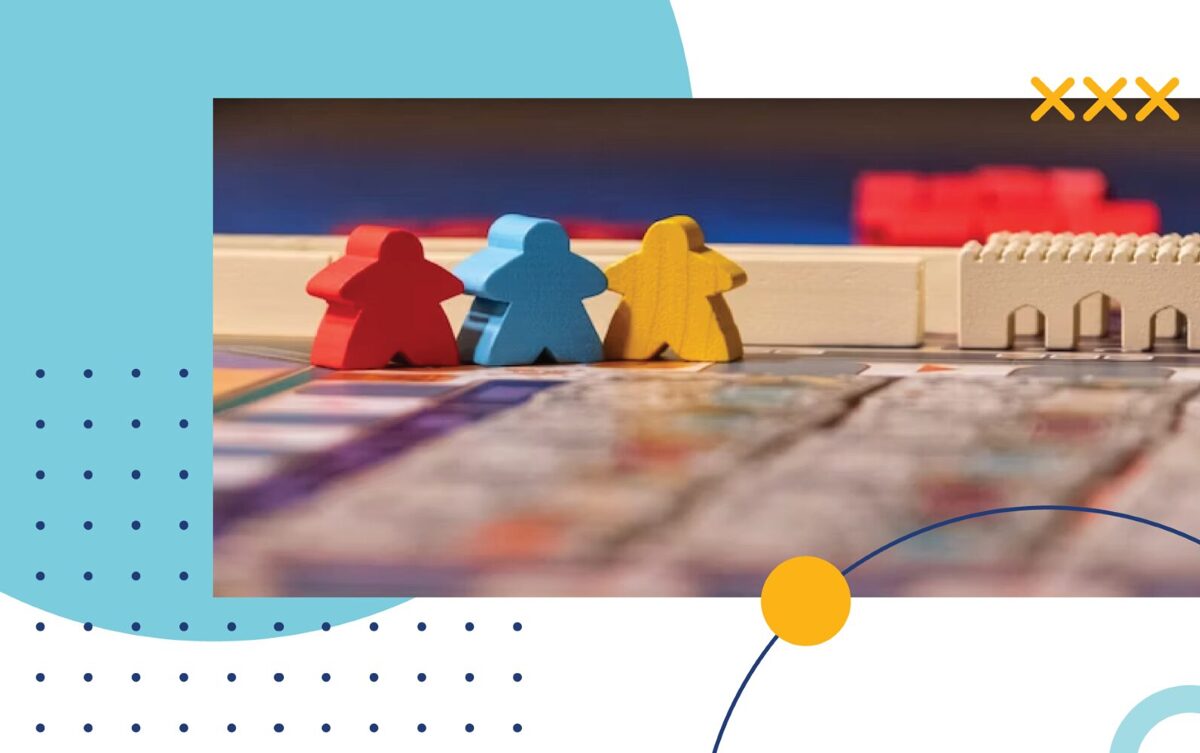
A key project goal of the HOST consortium: developing a Board Game
that will serve as a learning tool for hospitality staff with
autism. Why is a board game so suitable for this
purpose?
Autistic employees. Benefits and advantages for Hospitality
By Polys Kallis
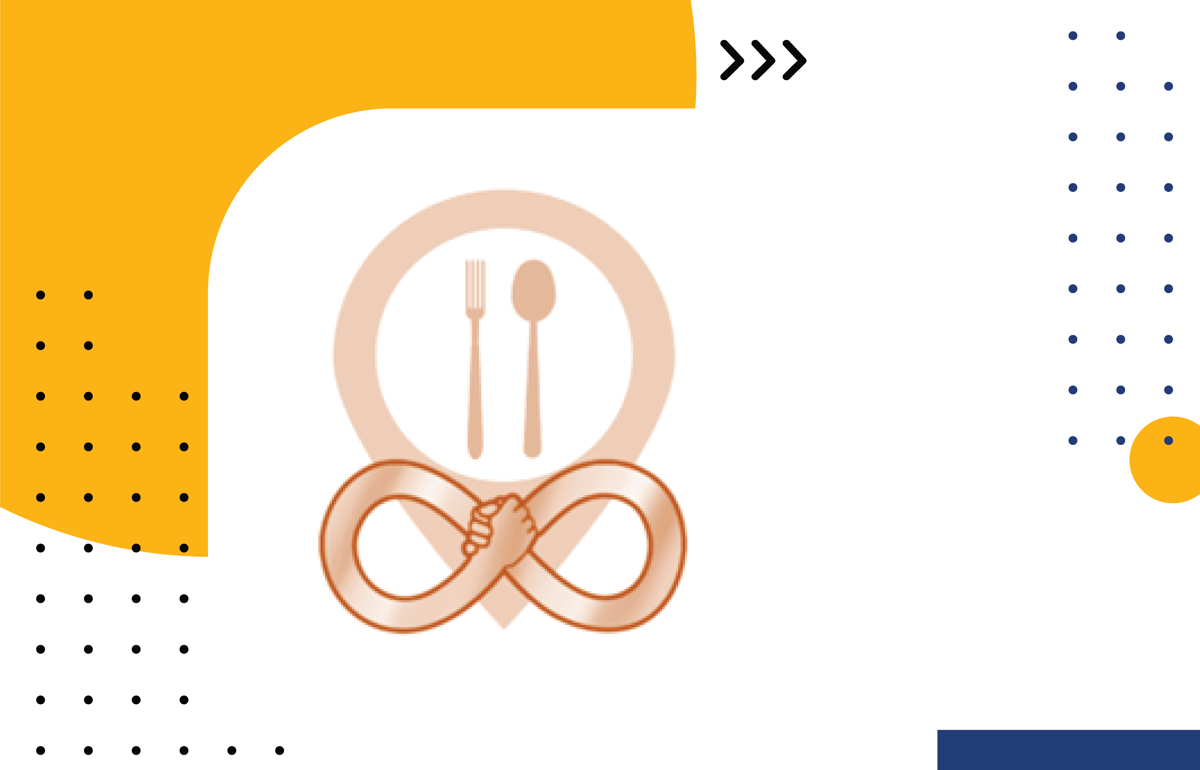
The
shortage of staff in Hospitality is a worldwide phenomenon.
The fact that a large proportion of the population are autistic
persons, justifies the question why not more autistic people are
not employed in this field.
Employee Performance Management

Performance Management for all staff – regardless of ability – should be an ongoing process that lasts throughout the entire employment cycle. Managers can stay in touch with the progress of employees by scheduling ‘review’ sessions in a one-to-one or even group format. The frequency of Performance Review Sessions can be agreed upon between Managers and Employees, although usually different organisations have their own management policies with pre-defined parameters.
Why should you invest in an autistic workforce?

People with autism and other qualities are often experts within their field of expertise. They are excellent at understanding complexity and ensuring error-free task completion. They can see patterns in chaos. Moreover, they approach "boring" tasks with a high work ethic and thoroughness.
Creating Inclusive Work Environments: The HOST VET Course for Managers
The HOST partnership performed online (77) and offline (1) interviews among tourism managers. The majority of our interviewees, at 82%, indicated awareness and familiarity with autism in some way. Furthermore, 47% of organizations have implemented a social responsibility policy, while 24% are considering implementation. This indicates a growing trend towards social responsibility and inclusivity in the workplace.
The European tourism industry is facing a shortage of skilled and qualified workers

Source:
pixabay.com
The European tourism industry is facing a shortage of skilled and qualified workers, especially in digital and customer service skills. There is also a lack of diversity and inclusion in the industry, which makes it difficult to attract and retain talent. To address the HR gap, industry stakeholders need to develop effective training and development programs, offer competitive compensation packages, and promote diversity and inclusion in the workplace.
Time to entrust autistic persons at hotel jobs?

By Polys Kallis, Kallis Filoxeniaki
At the moment, very few autistic people are employed, even though many want to be. One reason for this might be that nonautistic people focus on things that autistic people find difficult, and ignore things that autistic people can do well.
